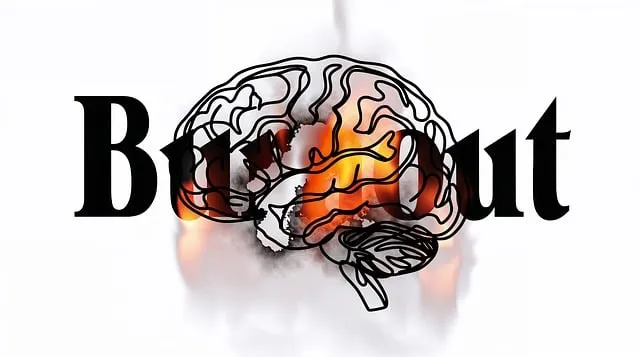Kaiser Permanente mental health facilities in Northglenn prioritize harm minimization through comprehensive risk assessment and strategic planning, focusing on environmental safety, medical errors prevention, patient-caregiver interactions, and organizational culture. They implement evidence-based practices like Conflict Resolution Techniques and Compassion Cultivation to enhance holistic care, improve staff well-being, and address patient emotional needs, such as anxiety and stress. Regular training in risk management ensures prompt challenge addressing, fosters compassionate cultivation, and contributes to positive healthcare outcomes for the community.
Risk assessment and harm minimization planning are essential components of high-quality patient care, especially within complex healthcare settings. This article explores these critical strategies through a lens focused on the Kaiser Permanente mental health model in Northglenn. We delve into understanding risk assessment as a foundational step for harm minimization, identifying potential risks, developing comprehensive mitigation plans, and implementing effective strategies to enhance patient care outcomes.
- Understanding Risk Assessment: A Foundation for Harm Minimization
- The Kaiser Permanente Mental Health Approach: Northglenn Focus
- Identifying Potential Risks and Their Impact on Patient Care
- Developing a Comprehensive Harm Minimization Plan
- Implementing Strategies and Continuous Improvement in Mental Health Services
Understanding Risk Assessment: A Foundation for Harm Minimization

Risk assessment is a fundamental step in harm minimization planning, especially within healthcare settings like Kaiser Permanente mental health facilities in Northglenn. It involves meticulously evaluating potential risks and their likelihood of causing harm to patients or staff. By identifying and understanding these risks, healthcare providers can implement effective strategies to mitigate them, ensuring a safer environment. This process is crucial for promoting mental wellness and preventing burnout among healthcare workers, which is a growing concern in the industry.
A comprehensive risk assessment considers various factors, including environmental hazards, medical errors, patient-caregiver interactions, and even organizational culture. For instance, Northglenn’s Kaiser Permanente can enhance its harm minimization plans by offering Healthcare Provider Cultural Competency Training to address potential biases and improve care delivery. Additionally, promoting mental wellness among staff through journaling exercises can be a powerful tool in identifying and managing personal stress levels, thereby reducing the risk of burnout. These proactive measures contribute to a healthier work environment and ultimately better patient outcomes.
The Kaiser Permanente Mental Health Approach: Northglenn Focus

The Kaiser Permanente Mental Health Approach in Northglenn prioritizes holistic care and harm minimization through a number of initiatives focused on mental well-being. This strategy incorporates evidence-based practices, like Conflict Resolution Techniques, to address the root causes of anxiety and stress among its community. By fostering a supportive environment, Kaiser Permanente encourages Self-Esteem Improvement, enabling individuals to navigate life’s challenges more effectively.
The Northglenn focus emphasizes proactive harm minimization planning, ensuring that interventions are tailored to meet the unique needs of each individual. This personalized approach recognizes that mental health issues can manifest differently for everyone. By integrating these comprehensive strategies, Kaiser Permanente Mental Health in Northglenn aims to create a more resilient and supportive community, where individuals can find relief from anxiety and work towards enhancing their overall well-being.
Identifying Potential Risks and Their Impact on Patient Care

Identifying potential risks is a critical step in risk assessment and harm minimization planning, especially within healthcare settings like Kaiser Permanente mental health facilities in Northglenn. These risks can vary widely, from medical complications to emotional distress or even security threats. By thoroughly evaluating various aspects of patient care, mental health professionals can anticipate and mitigate these risks effectively. For instance, a patient’s history of severe anxiety might indicate the need for specialized crisis intervention guidance during treatment.
Understanding the potential impact of these risks on patient care is paramount. Emotional healing processes, for example, could be significantly hindered by inadequate risk management. Therefore, mental health awareness and proactive planning are essential to ensuring safe and supportive environments for patients. This involves not only identifying vulnerabilities but also implementing appropriate strategies to address them, thereby fostering a more secure and therapeutic atmosphere at Kaiser Permanente Northglenn.
Developing a Comprehensive Harm Minimization Plan

Developing a comprehensive harm minimization plan is a vital step for mental health professionals, such as those affiliated with the Kaiser Permanente mental health number Northglenn, to ensure patient safety and foster compassionate cultivation practices. This plan should encompass a structured approach to risk assessment, identifying potential hazards, and implementing evidence-based strategies to mitigate risks effectively. By integrating compassion cultivation techniques into their practice, professionals can create a supportive environment that promotes anxiety relief and overall well-being for their clients.
A robust harm minimization strategy involves regular training in risk management planning for mental health professionals, enabling them to anticipate and address challenges promptly. This includes staying updated with the latest research on effective interventions for managing complex cases, such as those involving severe anxiety or emotional distress. By combining these proactive measures with compassionate approaches, mental health professionals can significantly enhance patient outcomes and contribute to a positive shift in the healthcare landscape.
Implementing Strategies and Continuous Improvement in Mental Health Services

Implementing effective risk assessment and harm minimization strategies is paramount in mental health services, especially at facilities like Kaiser Permanente Northglenn. A comprehensive approach involves integrating evidence-based practices that cater to individual needs while promoting continuous improvement. One such practice gaining traction is Compassion Cultivation, which focuses on enhancing empathy and understanding among healthcare providers, fostering a more nurturing environment for patients.
Additionally, encouraging patients to engage in Mental Wellness Journaling Exercises can provide valuable insights into their emotional states, enabling early identification of potential risks. By combining these strategies with Empathy Building Techniques, mental health professionals at Kaiser Permanente Northglenn can offer holistic care that not only treats symptoms but also addresses the underlying needs of each individual patient.
Risk assessment and harm minimization planning are integral components of providing quality mental health services. By understanding the complexities involved, as exemplified by the Kaiser Permanente Mental Health Approach in Northglenn, healthcare providers can effectively identify potential risks and develop robust strategies to mitigate them. This proactive approach ensures patient safety and improves overall care outcomes, making it a crucial aspect of modern mental health service delivery.






